Are you passionate about empowering the youth in your community? Securing funding for youth programs can be a game-changer, and crafting a compelling letter is essential to garnering support. In this article, we'll guide you through creating a powerful letter template that highlights your program's impact and aligns with potential funders' goals. So, let's dive in and explore how to effectively engage with grant supporters!
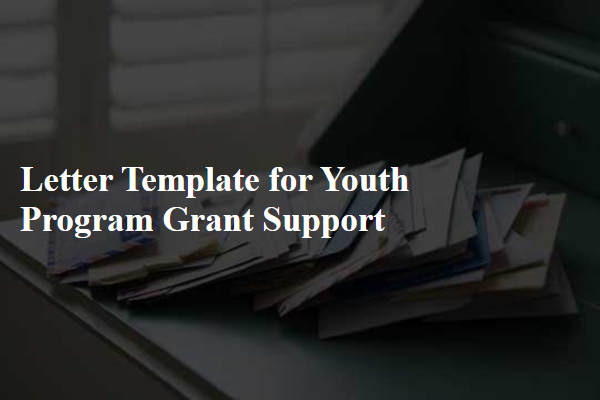
Clear Program Description
The youth program, designed to empower ages 12 to 18, aims to provide critical life skills, mentorship, and vocational training. Scheduled to run over 12 months, participants will engage in sessions covering topics such as financial literacy, conflict resolution, and career exploration. The program will take place in community centers across urban neighborhoods, specifically targeting low-income areas where resources are scarce. Engagement with local businesses will provide internship opportunities, while guest speakers, including influential community leaders, will share their personal success stories. Utilizing evidence-based curricula, this initiative seeks to enhance participants' confidence and equip them with tools necessary for future success, ultimately fostering a generation of informed, socially responsible young adults.
Defined Goals and Objectives
The youth program aims to foster personal development and community engagement among participants through structured activities and mentorship opportunities. Specific goals include increasing leadership skills, enhancing academic performance, and promoting civic involvement. Objectives consist of hosting a series of workshops (totaling 12) that cover topics such as public speaking, financial literacy, and community service planning. Additionally, the program will facilitate partnerships with local businesses for internship opportunities, aiming for at least 30 placements within the first year. Evaluation metrics will focus on participant feedback, skill assessments, and community impact surveys conducted quarterly.
Impact and Community Benefit
The youth program in Chicago, Illinois, titled "Empower Future Leaders," aims to engage over 200 young individuals aged 14-18 in skill-building workshops and community service projects throughout 2024. This initiative addresses the need for leadership development and civic engagement among urban youth. By partnering with local schools and organizations, such as the Chicago Public Library and the Boys & Girls Clubs of America, the program provides tailored curriculum in areas like financial literacy, public speaking, and conflict resolution. Expected community benefits include increased youth participation in local governance, a reduction in violence through constructive engagement, and enhanced academic performance indicators among participants. The program's impact will be evaluated through surveys and feedback from participants, providing measurable outcomes to demonstrate success and sustainability.
Detailed Budget and Resource Plan
A detailed budget and resource plan for a youth program, such as "Community Empowerment Initiative," is essential for securing grant support. The estimated total budget of $50,000 outlines key expenses. Personnel costs, approximately $20,000, cover salaries for program coordinators and youth mentors over a six-month period. Program materials, totaling $10,000, include educational resources, workshop supplies, and activity kits designed for over 100 local youth participants. Marketing expenses, estimated at $5,000, focus on outreach materials and community events to promote involvement. Facility rental costs of $5,000 will secure venue space for workshops and meetings at the Community Center on Main Street. Additionally, $5,000 is allocated for transportation, ensuring participants can travel to off-site field trips and events. Finally, a contingency fund of $5,000 covers unexpected expenses, ensuring financial stability for the program's success.
Qualifications and Expertise of Team
The youth program seeks to empower adolescents through skill development and mentorship. The team comprises professionals with extensive backgrounds in education, psychology, and social work, ensuring a well-rounded approach. Each member holds at least a master's degree in their respective fields, with certifications in youth counseling and program management. Over the past decade, the team has collectively facilitated over 100 workshops across various community centers, impacting approximately 5,000 young individuals. Their combined experience includes collaboration with organizations such as Big Brothers Big Sisters and local schools in Los Angeles, enhancing the program's credibility. Additionally, team members regularly attend national conferences focused on youth development, ensuring they remain informed of the latest strategies and research trends in the field.
Letter Template For Youth Program Grant Support Samples
Letter template of application for financial backing for youth initiatives
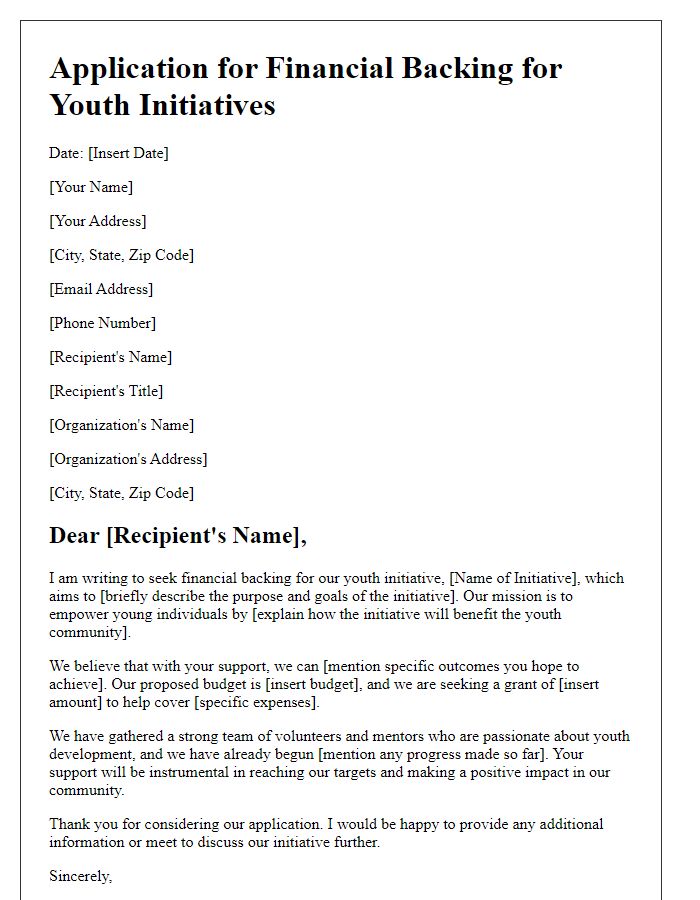
Letter template of inquiry for sponsorship opportunities for youth programs
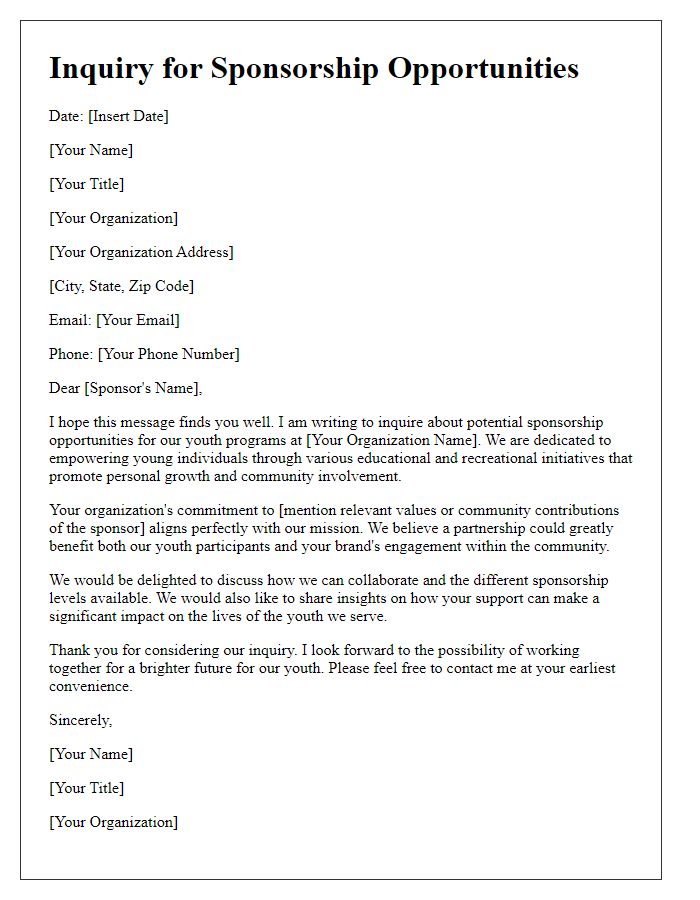
Letter template of justification for financial support of youth services
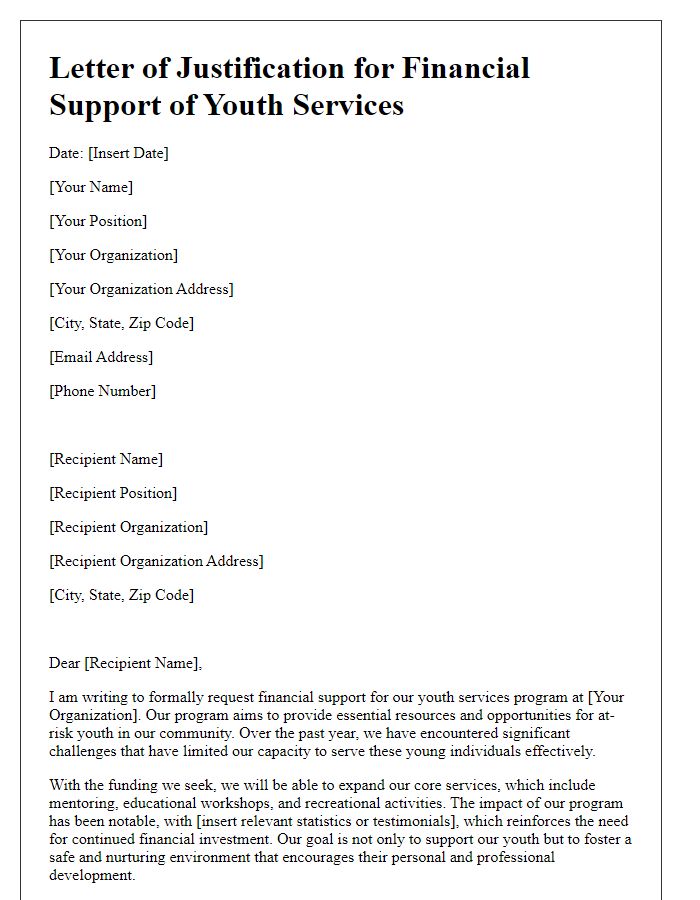

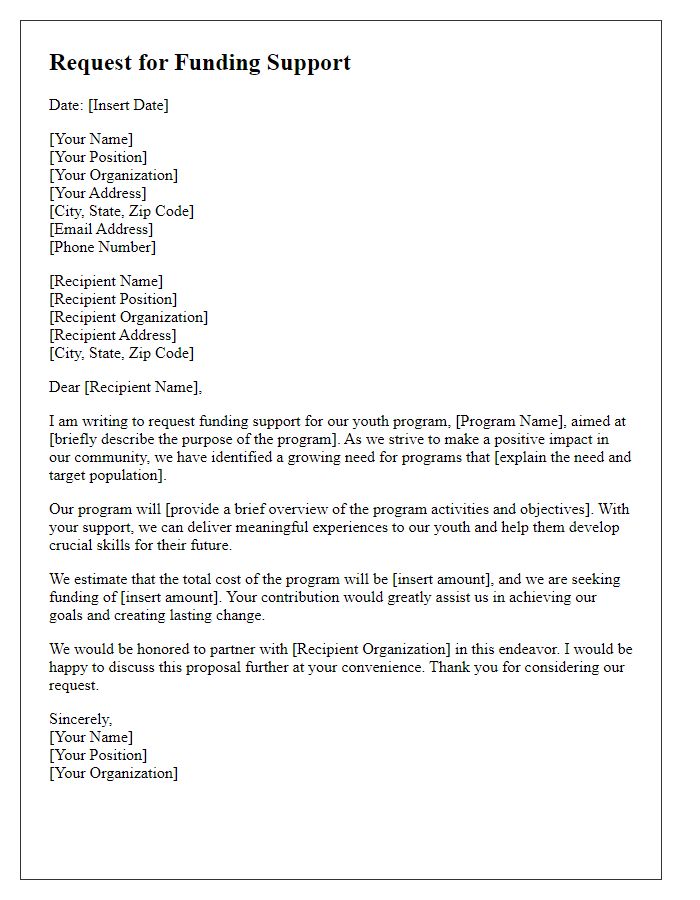
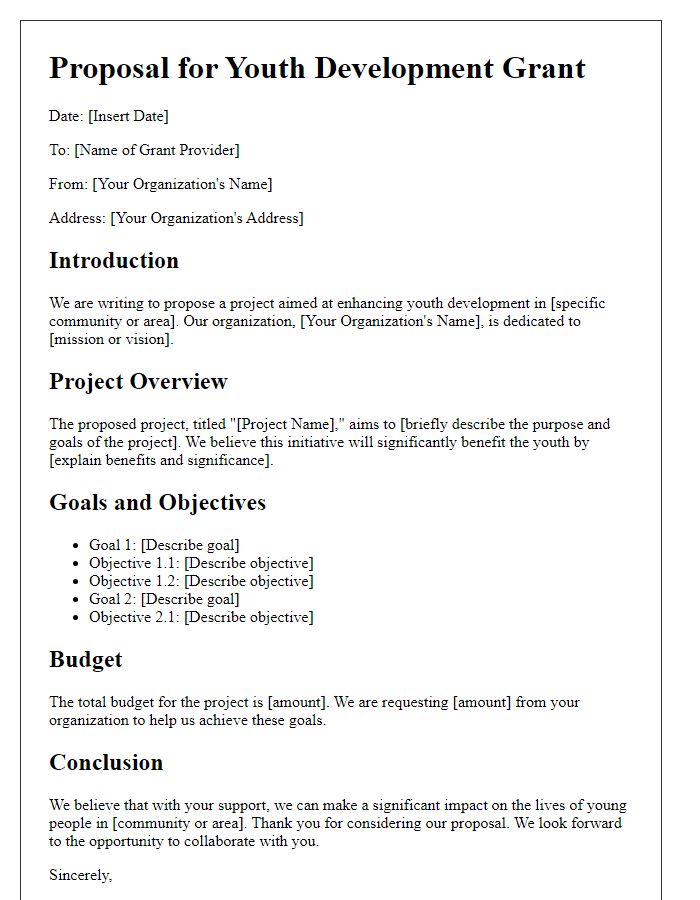
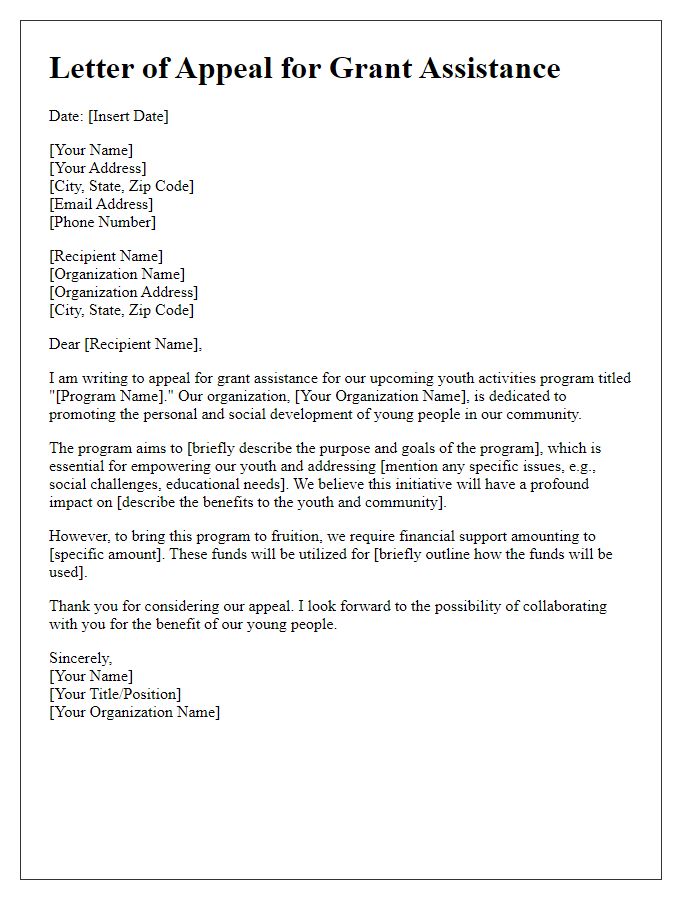
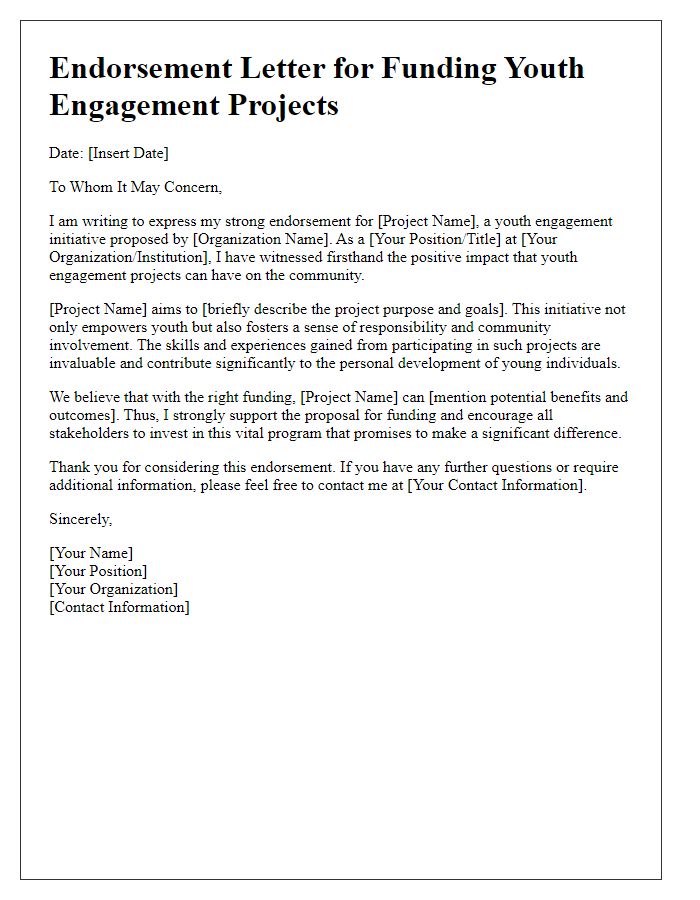
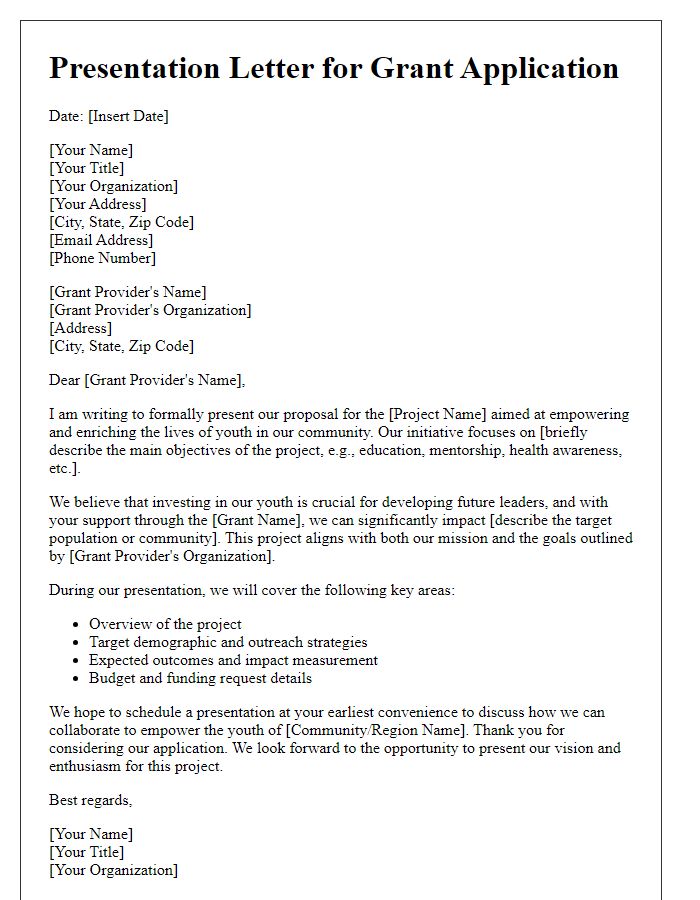
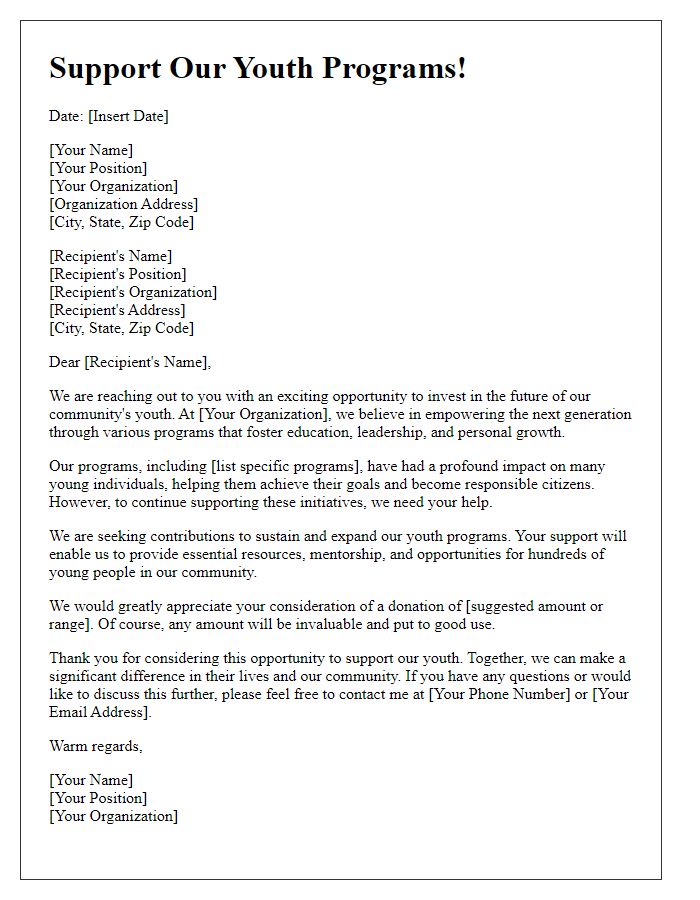
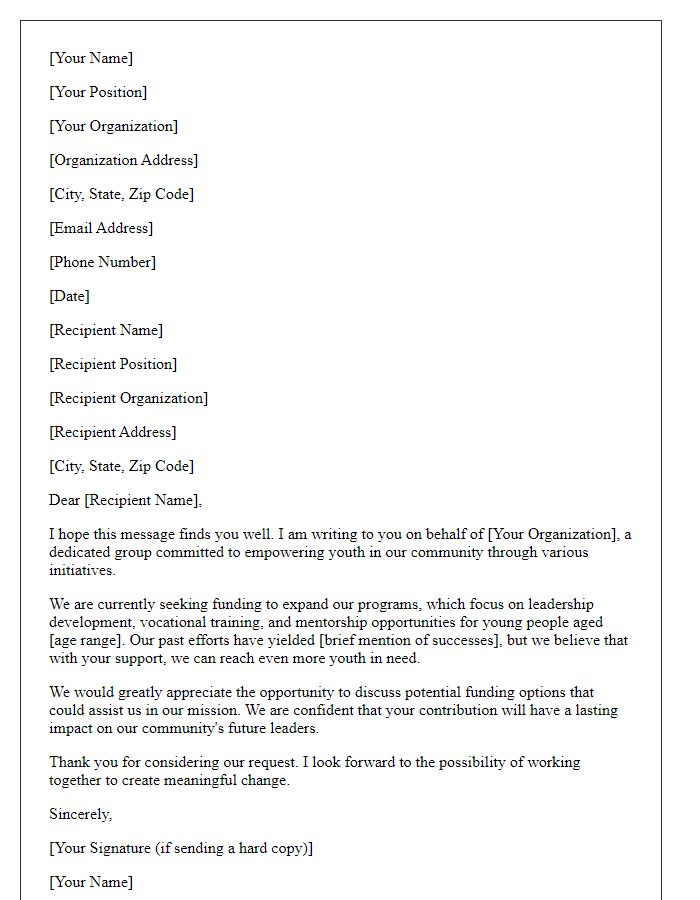


Comments